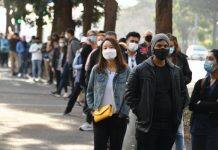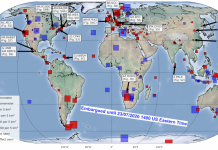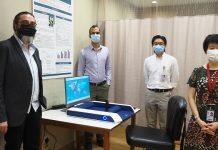OPINION As Sydney’s lockdown continues, what support is available – and needed – for...
JobKeeper and the Coronavirus Supplement ended earlier this year. But the last few months in have shown the COVID crisis is far from over in Australia.
Researchers aim to forecast COVID-19 cases further into the future
How many new COVID-19 cases will be in the ICU three weeks from today? University of Alberta scientists are using the wealth of public health data on COVID-19 to build AI-powered tools to help project and combat the pandemic.
Is a new breed of CEO required to lead in a post-COVID world?
Future CEOs will require extra skills to successfully manage themselves and their organisations, says UNSW Business School’s Frederik Anseel.
Studies look at reactions to COVID vaccines
Two studies into COVID-19 vaccinations in Australian pharmacies have found fewer people reported adverse reactions compared to those who received the jabs at medical practices and vaccine hubs.
Study finds missed opportunities with COVID antivirals on Australian PBS
A new study has revealed significant discrepancies in the prescription of COVID-19 antivirals, indicating that many patients may not have received the most effective treatment available.
COVID-19 pandemic causes a seismic noise quiet period in 2020
Research published in the journal Science has shown that lockdown measures to combat the spread of COVID-19 led to a 50% reduction in seismic noise observed around the world in early to mid 2020.
Record confirmed: UC home to nearly 47,000 students
The University of Cincinnati blew past its own enrollment projections this week as the official headcount landed at 46,798 students for fall semester.
NTU spin-off ARTICARES launches portable arm rehabilitation device for use from hospital to home
A new portable arm rehabilitation robot will help patients to carry out robot-aided therapy at home, allowing them to perform intensive exercises without visiting hospitals...
Vitamin supplements may have small effect on COVID-19 risk for women
Researchers at King’s analysing data from an app have found that certain vitamin supplements may have a small effect on reducing the likelihood of catching COVID-19 for women but not men.
Research for the World: new LSE magazine showcases the power of the social sciences
From working to identify the environmental impact of deforestation and improving our understanding of income inequality to the impact of COVID-19 on care homes...


















































